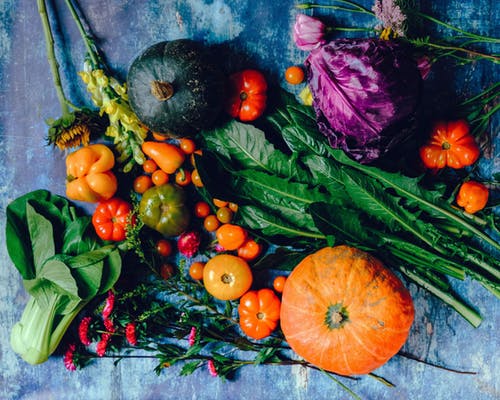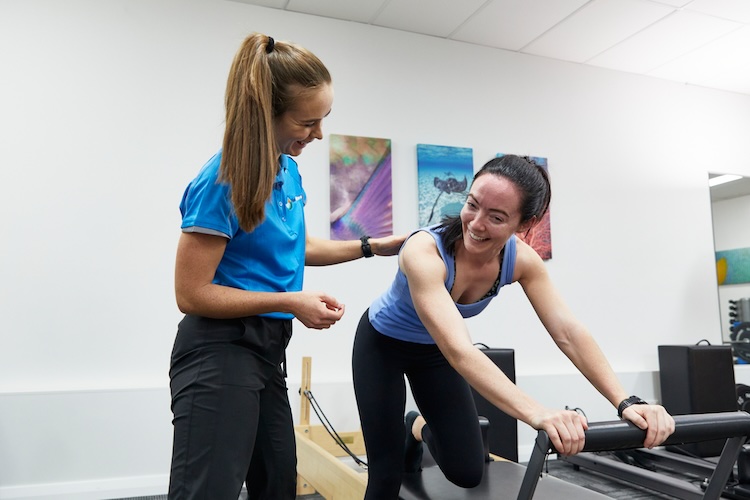
Vegetarian Vitality
If you enjoy a diet rich in fruit, vegetables, legumes and nuts, you’re already on the path of vitality. Vegetarians don’t eat meat for a range of health, environmental, ethical, religious or economic reasons. Whatever the reason no one can argue against the benefits of a vegetarian diet. In fact, countries that grow the oldest people are those who’s diets are rich in plant based foods. (1)
Health benefits of a vegetarian based diet include:
-
Higher in carbohydrates, fibre, magnesium, potassium, folate and anti-oxidants such as Vitamin C and E
-
High in phyto-nutrients (chemicals that have protective action on the body)
-
Lower risk of obesity, high blood cholesterol levels, hypertension, type II diabetes, constipation, gallstones, prostate and colon cancer
Potential risks of a vegetarian diet
-
Increased risk of deficiencies in vitamin B12 (found almost exclusively in animal foods), Vitamin B2,vitamin A, vitamin D, omega 3 fatty acids and some minerals, such as copper, calcium, iron, zinc and iodine.
These nutrient deficiencies mean that people who follow a vegetarian diet may be more susceptible to iron deficiency anaemia, protein deficiency (impaired growth, immunity and energy levels), rickets and osteoporosis.
Healthy Vegetarian Eating Tips
-
Follow basic healthy eating guidelines, with good balance of macro-nutrients (carbohydrate, protein and fats).
-
Maximise nutrient dense foods, especially rich in iron, calcium, zinc, vitamin B12
-
Minimise intake of nutritionally deficient foods such as sugar, processed and fast foods by choosing whole foods over refined foods.
-
VARIETY is the key to ensuring good phyto-nutrient intake. Aim to eat a rainbow of colour throughout the day. Check out Dr Deanna Minich’s website and her blog on why we need food diversity
-
Follow food combining principles to ensure a complete protein intake (see below)
Vegetarian Protein
Protein plays an important role in growth and repair for the body. It is made up of a chain of amino acids, 9 of which are essential and form what is called a ‘complete’ protein. All animal protein is ‘complete’ but most vegetarian foods are not. Soy is one of the only exceptions of a complete vegetable protein. (2)
Recent research has found that it is not necessary to follow food principles at each meal to ensure a complete protein.(2) However, I feel it is important to know these principles and at least apply them over the course of one day.
Plant food combining principles
Combine a food from at least TWO of the plant food groups below to gain a complete protein source.
1.NUTS/SEEDS – Sesame, Almond milk , Almonds, Walnuts, Sunflower seeds, Pumpkin seeds, Linseeds
2.WHOLE GRAINS – Corn , Oats, Wheat, Barley, Burghal, Rice, rice milk
3.LEGUMES/PULSES – Dried peas, beans, lentils, chick peas, kidney beans, harricot beans, soya beans, soya product (tofu, tempeh, soya yoghurt and soya cheese, soy milk).
Happiness and Longevity
If you’re on a quest for happiness, good health and longevity then adopting a diet rich in plant based foods is a good option. Enjoying the benefits of a phyto-nutrient rich diet doesn’t mean you have to or should give up animal based foods. In other words if you’re not ready to stop your bacon and eggs breakfast why not claim the title “Vegetarianish” .
Finally, I am a strong advocate of ‘food as medicine’. I love recommending a change in diet to someone for health reasons because it’s empowering, self sustaining and has no hidden costs. Diet is an essential part of my treatment but it’s not the whole picture. With so many fad diets and food advice in our current society its no wonder people get confused! Food is medicine but so is our meaning in life and sense of belonging in community.
So please remember to enjoy your ‘brown rice, tofu and rainbow salad’ with a dash of fun with friends.
References
-
-
https://www.betterhealth.vic.gov.au/health/healthyliving/vegetarian-and-vegan-eating
Written by Sasha Wray Naturopath, Occupational Therapist and 5 Elements Acupressure Practitioner. Sasha has a special interest in women’s health, pain care and mental health concerns. With over 20 years experience her focus is to help people live well.






